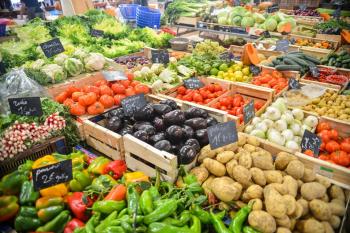How a Healthy diet with nutritional supplements can support the body in fight against COVID-19

An international research team, including Professor Philip Calder from the University of Southampton, has published a new report advising how the public can support their immune system and give it the best chance of fighting the coronavirus.
FAB RESEARCH COMMENT:
To date, nutrition and diet have received little attention in official public health advice for combating the epidemic of COVID-19 (the severe respiratory infections caused by the coronavirus SARS-Cov-2), despite the fundamental importance of nutrition to a healthy immune system.Here, leading researchers in the field provide a clear summary of what kind of diet is needed for healthy immune functioning, and why. They explain why this should include a varied intake of real foods, including vegetables and fruits, nuts, seeds and pulses, as well as some meat, fish and dairy products.
This is already known to be the kind of diet that reduces risks for all of the commonest physical health disorders (obesity, Type 2 diabetes, cardiovascular disease and immune system disorders), and also supports mental health and wellbeing.
However, because many if not most people don't manage to consume this kind of diet, they also emphasise that dietary supplementation with recommended daily intakes of vitamins, essential minerals and the long-chain omega-3 fatty acids (EPA and DHA, found in fish and seafood) makes sense.
And for Vitamins C and D - which are particularly important in supporting an optimal immune response to viral infections, they explain why the evidence would support even higher intakes (up to the upper safe level).
The associated research article is open access. See:
See also the recent news articles:
22/04/2020 - University of Southampton - Medical Express
A diet with a diverse and varied mixture of vegetables, fruits, nuts, seeds and pulses, along with some meat, fish and dairy products provides the vitamins, minerals and other nutrients the immune system needs for optimal function. However, the researchers recognize that supplements are a safe, effective and low cost way to support an optimal immune system where the diet does not provide enough of certain vitamins, minerals and omega three fatty acids.
Acute respiratory tract infections are a major cause of mortality globally as highlighted by seasonal influenza epidemics and the current outbreak of COVID19, caused by the coronavirus SARS-CoV-2.
A healthy immune system will help the body fight the virus and there are a number of ways in which nutrition can support it in this fight. Despite this, advice on nutrition is often missing in public discussions about immunity and infection.
Whilst vaccination programs can prime the immune response in cases of exposure to viruses, their levels of protection can vary and a vaccine has not yet been developed for COVID-19. The researchers are therefore calling for public health officials to include nutritional strategies in their recommendations to improve public health.
Philip Calder, Professor of Nutritional Immunology, explained "The strength of somebody's immune systems will not influence whether they get coronavirus; handwashing and social distancing are the best ways to avoid that. However, the immune system helps the body deal with the virus if they are infected and what we want is a system that functions properly when it's challenged with bacteria and viruses."
Among the foods Professor Calder recommends are a variety of fruits and vegetables which are a good source of vitamins and minerals that are important for supporting the immune system. Foods that are high in fiber are also important as some of the undigested fiber in the gut can promote the growth of good bacteria which interact with the immune system to make it work better. The third recommendation is oily fish which is a source of omega 3 fatty acids that help to regulate and control the immune system. Finally, meat is important as a good source of nutrients such as iron and vitamin B12, so people who do not eat meat should consider supplements.
Whilst consuming commercial probiotic products can have a role to play—by seeding good bacteria in the gut—Professor Calder recommends plant based food and fiber as an alternative as these provide an environment to grow the good bacteria that are already in the large intestine.
Professor Calder added, "The present situation with COVID-19 shows that we cannot just rely on vaccinations to limit the impact of respiratory infections. Improving our nutrition is a very straight forward step that we can all take to help our bodies deal with infections and limit the emergence of new, more virulent strains of viruses. We therefore strongly encourage public health officials to make sure nutritional strategies are included in all their messaging about coping with viral infections."
The report is currently published on the Preprints website ahead of peer review.
